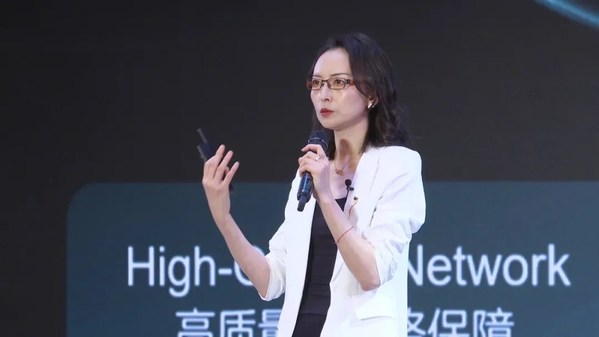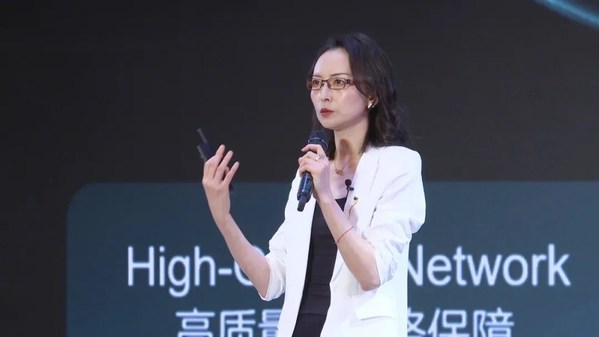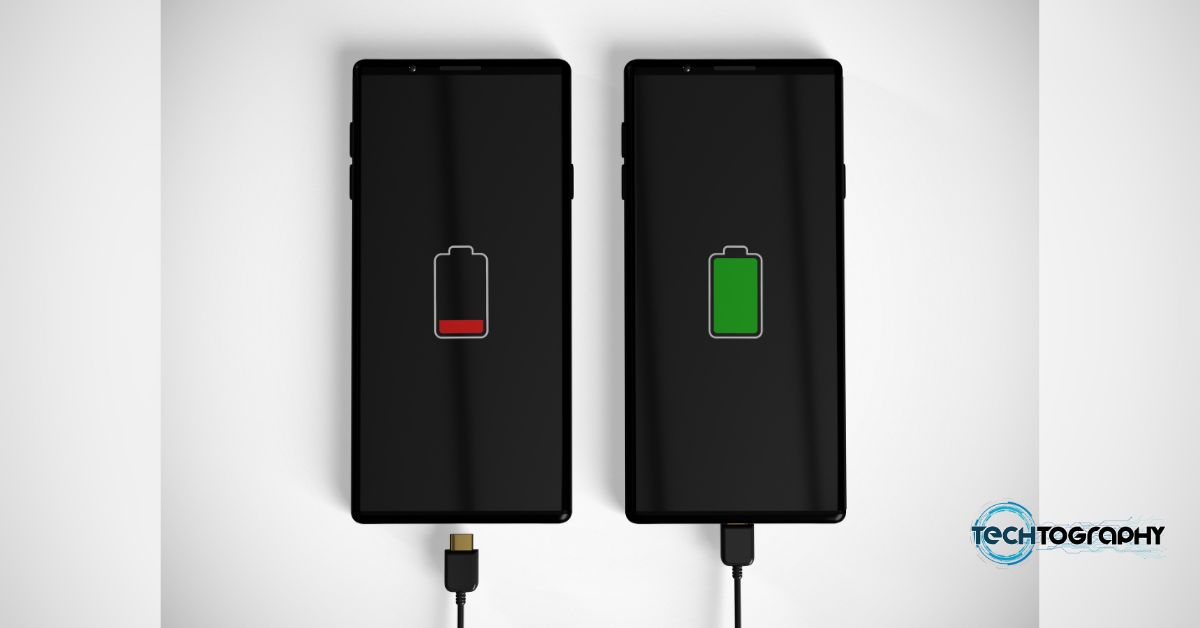SHENZHEN, China, Oct. 26, 2021 /PRNewswire/ — ZTE Corporation (0763.HK / 000063.SZ), a major international provider of telecommunications, enterprise and consumer technology solutions for the mobile internet, today announced that ZTE’s Chief Development Officer, Cui Li, has delivered a speech on Embracing a New Era with Digital Service Providers at the ZTE Global Analyst Conference.
With increasing demands for data services, many public cloud providers and telecom operators are vigorously making cross-border innovations, expecting to seize the new opportunities at the early stages of a new round of digital economy surge. ZTE believes that to further consolidate digital foundations in combination with the characteristics of digital services will effectively help operators realize the transformation from traditional communication service providers to future digital service providers, while also speeding up the digital and intelligent transformation of society.
"ZTE expects to consolidate digital foundations with enhanced network capabilities, expanded digital capabilities, and digital transformation of industries, thereby helping operators to realize digital transformation, better embrace the digital era and stay ahead in future competitions, while creating value and winning the future together," said Ms. Cui.
Digital transformation is an inevitable trend and enterprises need to take the initiatives
"Digital transformation is now an inevitable trend. Taking the lead in digital transformation will definitely bring us digital dividends and competitive edges," Ms. Cui stressed. "The era of digital services will be the beginning of a new round of competition for the incremental market."
From the perspective of the macro environment, firstly, the digital economy has already become one of the major driving forces for high-quality economic growth and we need to follow the trend. Secondly, the increasing uncertainties in the global environment are forcing enterprises to enhance their capabilities to guard against risks. Thirdly, people are more aware of the importance of environmental protection and sustainable development, and digital transformation is the key for major countries to achieving carbon neutrality goals.
And from the perspective of the market, as traditional communication services have hit a revenue ceiling, the digital service market characterized by cloud-network synergy is gradually opening up.
According to Ms. Cui’s analysis, firstly, in the post-pandemic era, smart home has become a new scenario that integrates work, education, and entertainment. The development of smart home applications, such as 4K/8K videos and VR/AR, will drive the rapid growth of the market. Secondly, intelligent Internet of everything (IIoE) contributes to the explosive growth of connected terminals. The processing of massive data poses higher requirements for network capability and ubiquitous computing power.
Thirdly, regarding cost-effective integrated ICT solutions, instead of building data centers by themselves, enterprise customers are more willing to turn to digital service providers (DSPs) for professional integrated services at lower costs, so that they can focus more on business improvement. Also, providing integrated services for the digital transformation of traditional industries will bring new growth opportunities for operators.
With the great room for market growth of digital services, Ms. Cui believes that the transformation of traditional operators from communication service providers to digital service providers is a necessary option to enhance their competitiveness.
From the perspective of technological development, the emerging new technologies and evolving digital technologies in recent years have laid a solid foundation for digital services, for instance, dual-gigabit network access based on 5G and gigabit optical networks, distributed computing based on cloud-edge-terminal synergy, cloud native, digital twin and AI applications, and Zero Trust Architecture for data security and cybersecurity.
Among so many technologies, how should operators make choices and effectively apply them? Cui Li believes that the decisive factor is "the value that a technology can create." She suggests following three principles. The first principle means value creation for customers, indicating to focus on technology integration, capability decoupling, ecological openness, and fundamental security. The second refers to Forward-Looking Deployment, which means facing the rapid technology evolution and gaining competitive edges in future key technologies. The third is Differential Development, which means giving full play to the advantages in main business and refraining from the don’ts, so as to play a key role in the value ecosystem in the future.
Integrating networks, clouds, and industries assists operators in staying ahead in future competitions
After analyzing the macro environment, market and technological trend, Ms. Cui said, "operators should start to transform from CSPs to DSPs right now. With their existing advantages, operators can build a solid digital foundation integrating networks, clouds, and industries, thus staying ahead in future competitions."
Networks are the basis for the Internet of Everything, while distributed cloud can provide computing power anytime and anywhere. Combining the big data technology with networks and distributed cloud, we can achieve data collection and integration. Furthermore, we can realize high-dimensional perception and intelligent decision-making through AI technology. Regarding industries, the key is to provide customer-oriented digital services tailored to various verticals. In other words, to satisfy the requirements of different customers, we should flexibly integrate the underlying capabilities of networks and clouds, to provide cost-effective, user-friendly digital services. That makes all the difference.
"With network-cloud-industry synergy, operators can effectively drive the digital transformation of verticals as well as the ToC, ToH, and ToB business, thereby taking a leading position in the digital era," stressed Ms. Cui.
Enhance network capabilities. We keep emphasizing the improvement of network capabilities, namely, to explore resources and reduce costs. Specifically, we should seek continuous innovations and breakthroughs in ultimate experience and efficiency.
Ultimate experience focuses on "exploring resources". In order to make success in the market, it’s essential to bring customers brand new experiences. For example, individual consumers expect full network coverage with fast speed while home users look for better experience grounded on multi-screen display, intelligent applications, and immersive interactions, and industry customers require large uplink bandwidth, URLLC applications, as well as small-granularity hard slicing.
Most importantly, customers are willing to pay for these brand new experiences that bring them greater value.
As for ultimate efficiency, the key is cost reduction. We strive to make continuous breakthroughs in spectral, operational, and power efficiency, to lower costs and improve overall efficiency.
Next is to expand digital capabilities. It’s suggested that operators focus on optimal resource efficiency and edge-driven applications to promote the expansion of digital capabilities in the new era.
As we can see, enterprises are advancing digitalization of production to improve efficiency. To meet requirements such as ultra-low latency and data security, a large amount of data will be processed at the edge. Therefore, the edge will become a field with fierce competition for innovation.
From "Center Cloud" to "Distributed Cloud", first, telecom operators should take their existing advantages to achieve low-cost startup and agile deployment at the edge. For example, they have strong infrastructure networks, massive distributed sites and the data center, and provide customers with agile and tailored local digital services and maintenance services. Then, it’s suggested that operators give full play to their advantages in ICT as well as hardware-software convergence for edge-driven middle platform reconstruction, to ensure higher resource efficiency and provide stronger support for fast innovations at the edge.
"Edge-driven middle platform reconstruction" is to employ finer-granularity components horizontally, and build a thinner PaaS layer to enable vertical decoupling of the technical service layer and general service layer. Such an architecture enables dual circulations. Through highly efficient hardware and software coordination, the technical service layer and the IaaS layer provide effective support for the upper application layer.
This architecture also guarantees optimal resource efficiency, which can be achieved through the synergy between the general service layer and the application layer. Specifically, with its low-code architecture, the general service layer enables the agile development of the upper application layer. At the same time, the public logic and algorithms accumulated from the application layer can be used to resolve the conflicts between customization and scale, thereby facilitating the sustainable development of operators.
With enhanced network capabilities and expanded digital capabilities, conditions are ripe for digital transformation of industries. The most important is to remain value-oriented and scenario-driven when tailoring digital services for vertical industries.
It is a target to develop underlying network and cloud capabilities by general core technologies. On this basis, such capabilities can be flexibly integrated for various industries, enterprises, scenarios, and applications, and more importantly, for application innovation and incubation.
At the end of her speech, Ms. Cui concludes, "With the future approaching, there are opportunities and challenges in the digital era. ZTE is committed to integrating networks, clouds and industries to solidify its position in the industry and facilitate the digital transformation of operators, thus embracing the digital era and achieving win-win success with all partners."
Media Contact:
Margaret Ma
ZTE Corporation
Tel: +86 755 26775189
Email: [email protected]
Related Links :
http://www.zte.com.cn




